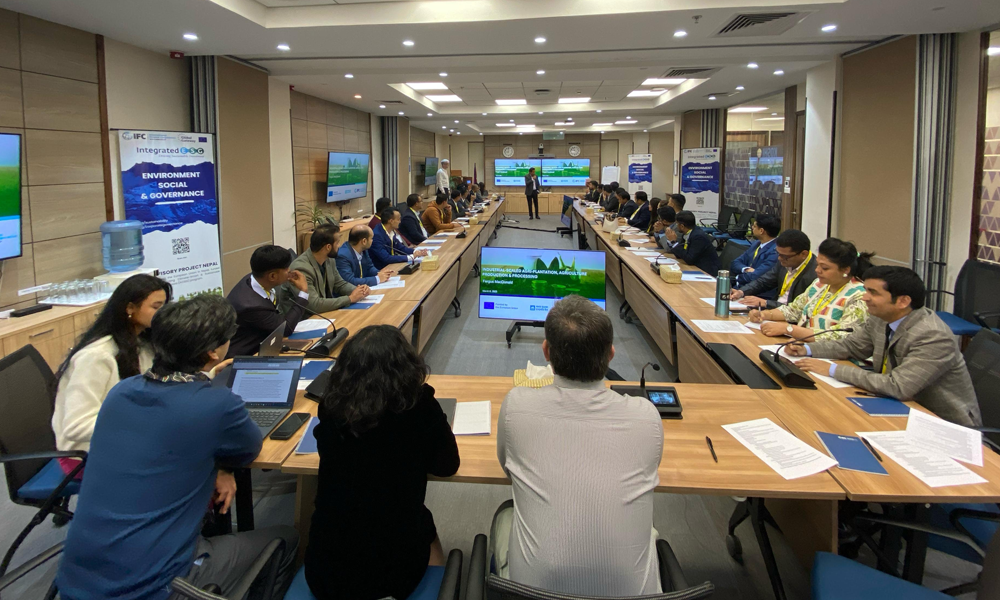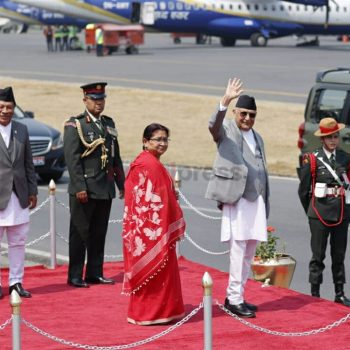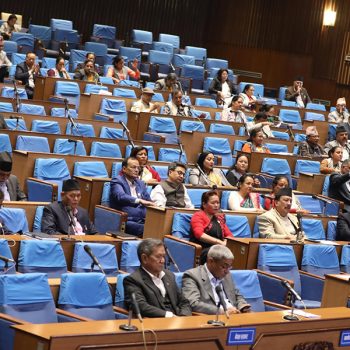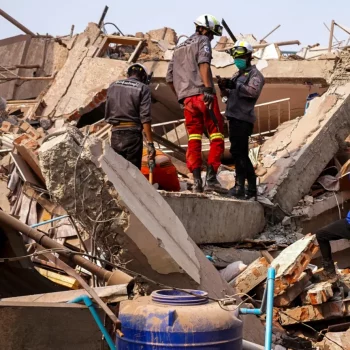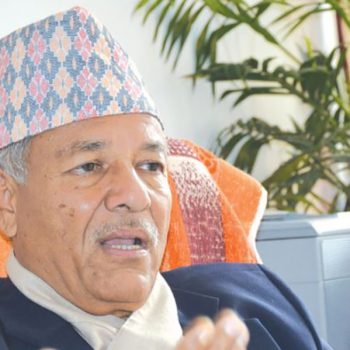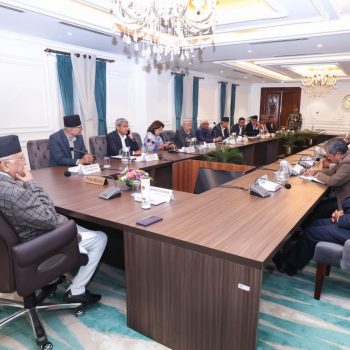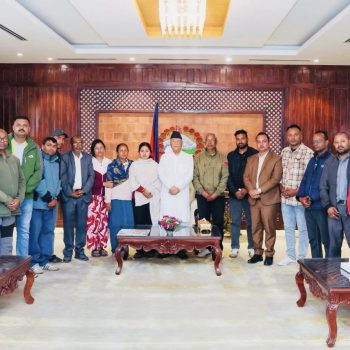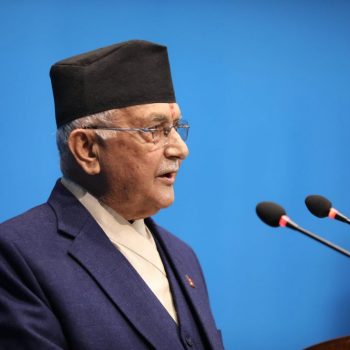Struggle of budgeting: Burden of elections on a pandemic-attacked nation
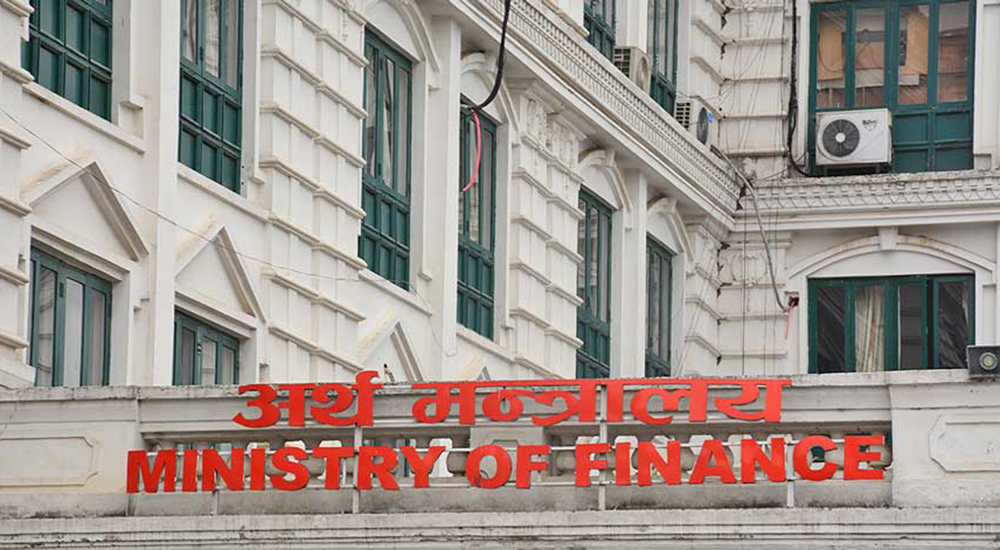
KATHMANDU: It has been decided that the policies, programs, and budget for the upcoming fiscal year, which are in the grip of the ongoing political conflict and constitutional complexities in the country, will not come from a regular process. At the same time, Finance Ministry officials, who have been under pressure to prepare budgets due to the COVID pandemic, have been further alarmed by the recent announcement of mid-term elections.
Preparations have been made to bring the budget through an ordinance as soon as President Bidhya Devi Bhandari dissolved the parliament on the recommendation of the government. According to constitutional provisions, the Finance Minister should have made the budget public through a parliamentary meeting on 29th May. However, now that there is no parliament, the budget has to be brought through an ordinance.
There is a regular constitutional provision in both the parliaments of the federal parliament to bring the budget on 29th May after presenting the policies and programs, appropriation bills, pre-budget discussion, medium-term expenditure structure, and economic survey. Senior economist Chandra Mani Adhikari says that the government has no constitutional obligation to present the budget on 29th May as the schedule ahead of the budget has been blocked and the parliament has been dissolved.
“As the government has not completed the pre-budget procedures, there is no obligation for the budget to come on 29th May,” he said. “The constitution has not spoken about the date of presenting the budget through an ordinance.”
However, the Finance Ministry is preparing to release the budget on 29th May as per the regular schedule.
Former Vice-Chairman of the National Planning Commission Dr. Govinda Pokhrel says that the government can only bring expenditure bills and not the entire budget.
“The government has lost the vote of confidence, so now it can only bring expenditure bills,” he said. “The government has lost the basis for presenting the budget. The KP Oli-led government did not want to do so as it had to complete a certain constitutional process to bring in the budget.”
COVID and elections: The priorities
COVID-19 had already created a resource management crisis in the next fiscal year’s budget, and the Finance Ministry is under extreme pressure after the government recently announced midterm elections. The government has to spend billions for elections.
The Ministry is preparing to prioritize COVID prevention and control, economic recovery and relief, and the elections. According to a source in the Ministry of Finance, about 90% of the budget for the coming fiscal year will be focused on COVID-related programs.
Opposition parties have stated the caretaker government cannot announce new programs.
Ministry Spokesperson Mahesh Acharya says that the Finance Ministry must ensure resources for the election.
“The budget for the coming fiscal year will focus on prevention and control of COVID-19, economic recovery and employment and elections,” Acharya said.
The government has announced that it is not difficult to arrange the budget for the election, said Dr. Prakash Shrestha, Economic Advisor to the Finance Minister.
“The work of ensuring budget expenditure and resources as demanded by the Election Commission has been taken forward,” he said, adding that “tenders need not be called for this, only a few points and programs should be added to the budget.”
The National Planning Commission had lowered the budget ceiling in view of the COVID-19 pandemic and its second wave. The Planning Commission was not in favor of increasing the size of the budget from the beginning as the budget expenditure would be reduced and the source of revenue would be reduced in the current fiscal year as well.
The Ministry of Finance said that there exists a pressure for resources due to COVID-19 in the current fiscal year and asked the concerned ministries to focus on completing the old projects rather than new programs and projects. The Ministry of Finance had been requesting the ministries to demand a budget only for the survey of new projects and only those projects for which all the preparatory work has been completed.
Some ministries had complained to the parliamentary committees that the Finance Ministry was allocating the budget in such a way that it could not even cover the current expenditure.
Experts emphasize COVID prevention and control
Experts have emphasized that the main priority of the current government should be the survival of the people and the continuity of industry and business. He said that the government should focus on employment protection by relieving and rehabilitating the industries and businesses which are in a state of shutdown due to the second wave of COVID-19.
“Even more important than the election is the need to save the lives of the people and the protection of business,” Pokhrel explains.
“The government should bring programs to save the lives of people from COVID-19,” he said.
Senior economist Chandra Mani Adhikari says that even though the current need of the state is to save the lives of the people, the danger of concentrating more resources in the election has increased.
“The government should ensure a budget of around Rs 100 Billion for central and local elections. Therefore, as the government’s entire focus is on ensuring the source of the elections, there is a danger of people’s livelihood and economic recovery being overshadowed,” he said.
Populist programs
Despite pressure from sources, the government plans to include some populist programs in the budget, including increasing old age allowances. Prime Minister KP Sharma Oli had announced at a public event that the old age allowance would be increased through the budget. Therefore, the Ministry is obliged to increase the old age allowance, albeit by a small amount.
On the other hand, sources claim that the salaries of government employees did not increase last year and may thus increase this year. However, officials are worried that raising the salaries of government employees could lead to sharp controversy as the pandemic weakens the economy.
As the parliament has been dissolved, there is no need to allocate a budget in the parliamentary development fund in the budget of the coming fiscal year. This seems to be included in election-focused programs.
As Finance Minister Bishnu Prasad Poudel is a political person, a difference can be felt in the budget, says a Finance Ministry source. He wants to include some sloganeering programs in the budget.
Former Finance Minister Dr. Yubaraj Khatiwada had focused more on laying the foundation of the economy than the populist programs, but Finance Minister Poudel has to please party workers and voters. Therefore, the Ministry of Finance claims that the budget may be distribution-oriented.
Resource crisis
Nepal presents a deficit budget every fiscal year. As the budget allocation is higher than revenue collection, the government has to take internal and external loans to meet it.
The government is not in a position to increase both the scope and rate of revenue in the budget for the coming fiscal year. As the effects of this global pandemic are felt all over the world, foreign grants are unlikely to be received.
Despite the commitment of Rs 60 billion for grants in the current fiscal year, only about Rs 10 billion has been received. Therefore, resource management of the current fiscal year budget is certain to be an important part of internal and external debt.
Due to the second wave of COVID-19, the country has been under prohibitory orders since 29th April. Due to this, 82% of all industries and businesses that had opened by April have been closed again. Areas other than essential goods and services, construction, and the stock market have been completely closed. Revenue is likely to shrink in the budget for the coming fiscal year as industry and business are shut.
It is certain that the government’s customs revenue, value-added tax, and direct tax will be affected by the reduction in imports unless the impact of COVID is reduced and employment and incomes of the people increase.
It is also being analyzed that the situation could become even more frightening with the possible onset of the third wave of COVID-19.




